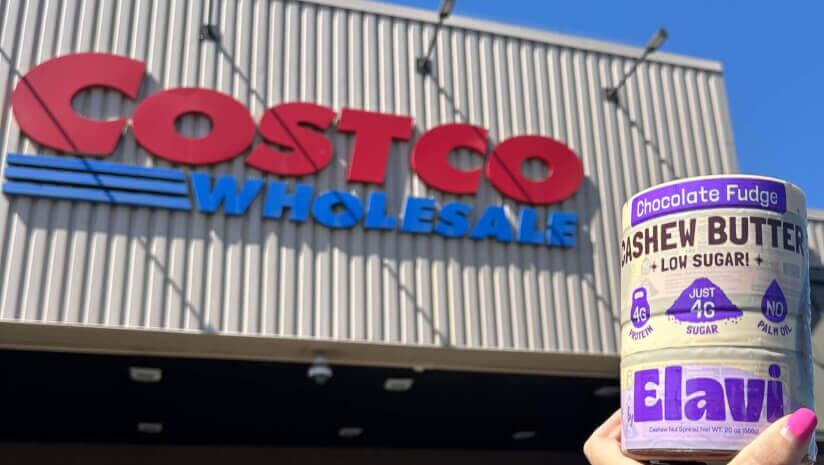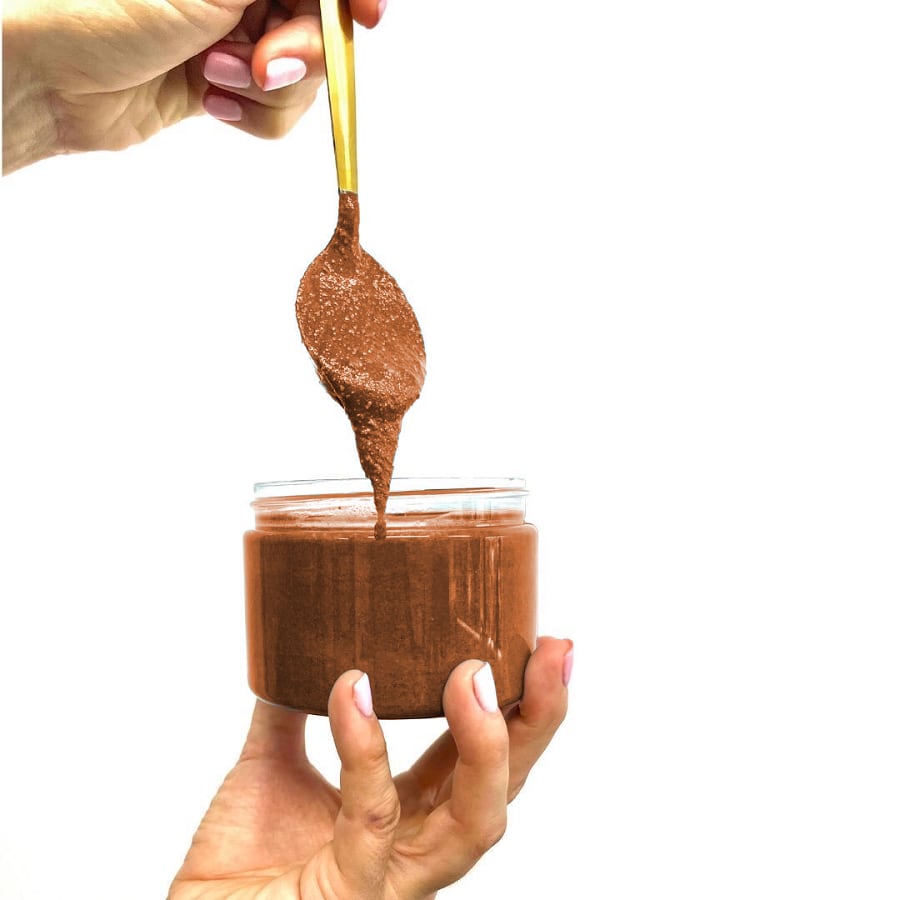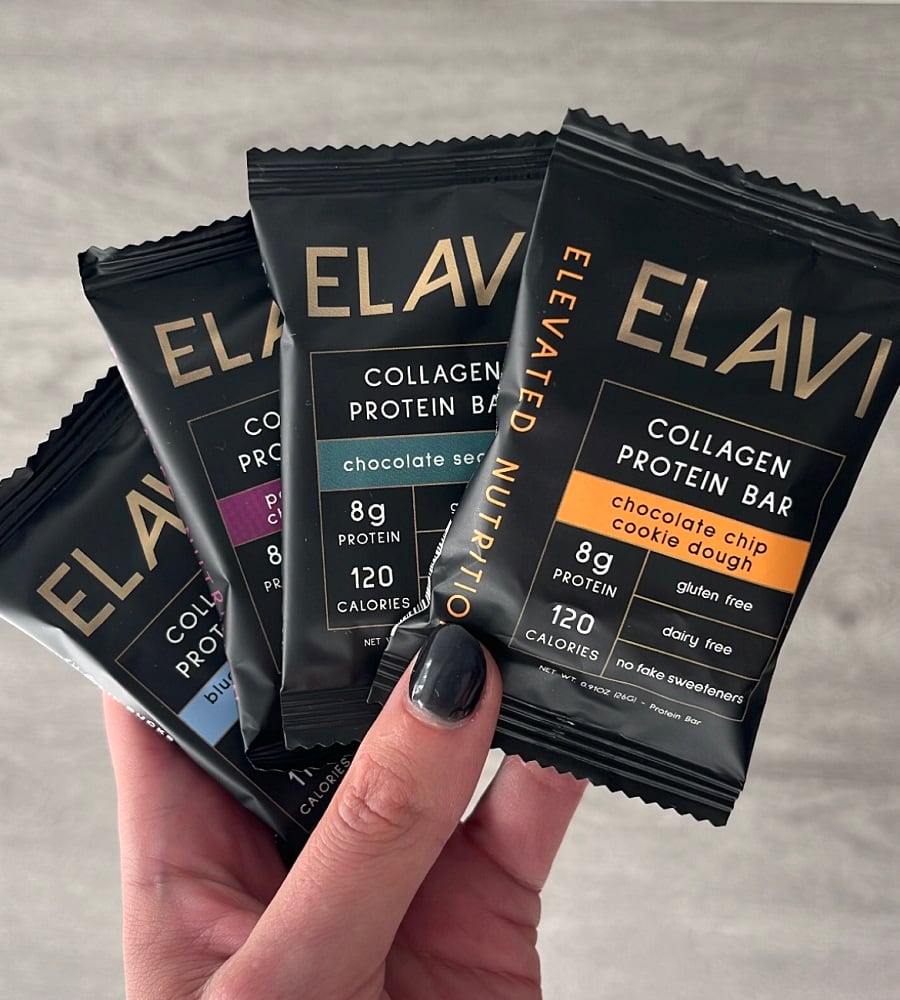Sometimes one step back can allow for two steps forward, as in the case of better-for-you startup Elavi counterintuitive decision to revert to DTC from retail in order to focus on a new SKU that it thinks will have broader appeal.
The startup’s flagship cashew butters caught the attention of Costco in Southern California after their debut in 2022, but by transitioning the cashew butters back to online-only, the company is able to focus on its high-protein brownies, which have attracted attention from both consumers and large retailers.
From DTC to Costco and beyond
During Sweets and Snacks Expo in 2024, Elavi connected with Costco’s buyers as the brand began launching its next product – a clean-label high protein brownie sweetened with dates and made with tapioca fiber. Each 53-gram brownie contains 11 grams of protein and 8 grams of sugar.
With a growing demand for the protein brownies, Elavi pivoted to focus its retail efforts on the brownies and moved the cashew butters to DTC, Razavi explained. The existing relationship with Costco made an easy transition to switch out the products, and later leverage retail sales data to show Whole Foods Market, she added.
Elavi’s chocolate fudge cashew butters made its Costco debut in 15 stores across Southern California after a successful Costco Roadshow run in 2023. Razavi credits building a relationship with the retailer to persistent cold calling, starting the brand’s retail journey moving forward.
The transition from butters to brownies in Costco “gave our buyers validation that we knew what we were doing in terms of being a Costco vendor” because of “our prior existing success with a different product line,” Razavi said.
Since the brownie’s launch in 2024, it landed on Whole Foods and Costco shelves in Southern California, with plans to expand into retailers in other states. The brand will launch several other brownie flavors this year – a strategic decision to expand product offerings and “command attention on a very crowded shelf,” Razavi said.
With high cocoa prices, the brand also launched a Birthday Cake Blondie that does not contain chocolate – a move that reflects broader shifts in the industry with brands expanding into non-chocolate SKUs, she noted.
Advice from founders to founders
Check out more episodes from FoodNavigator’s Startup Spotlight series, featuring entrepreneurs behind emerging food and beverage brands.
From console to convenience store: How Bangers! Snacks converts videogame buzz into real-world retail sales: Startup Bangers! Snacks is adding hundreds of new retail doors each week – a breakneck pace that might give some entrepreneurs pause, but which Founder Phillip Tran says he is confident that he can support, thanks in part to millions of video gamers who already know his caffeinated chips from more than 200 Roblox games.
Fresh Fizz brings clean label soda back to basics: In a beverage aisle crowded with functional claims, Fresh Fizz is taking a different approach: simplicity. Founded by Rebecca and Yoni Schwartz, the New York–based soda company is built on a back-to-basics formula that uses herbs, spices, juices and natural sweeteners like honey, maple syrup and date syrup.
Niche vs mainstream: Startup ReadyBar sees big potential in focused market: ReadyBar's founder warns CPG startups against trying to be everything to everyone. His lesson: Focus on a niche, like first responders, to build real traction.
Private label, public impact: Startup Mamame outsources consumer education to retailers: The Indonesia-based brand uses retailer partnerships to introduce US consumers to tempeh chips - turning a low-cost trial tactic into a long-term strategy for awareness and growth.
Azabu Foods puts umami front and center with debut condiment: The startup is taking a measured approach with its globally inspired Umami Everything sauce, soft launching in select markets to ensure production keeps pace with growing demand.
Laying the ‘groundwork’ with previous lines to grab buyers’ attention
While Elavi’s retail growth “may look like this overnight success” with the high protein brownies, Razavi attributes the brand’s acceleration to “years of groundwork laid with previous product lines,” which also includes a now discontinued line of gut-friendly, collagen protein bars.
“Those [products] were so instrumental for us to understand the market, understand retail buyers, understand how to pitch and how to successfully get their attention,” Razavi explained.
Elavi’s clean label grabbed buyers’ attention as the market demanded more products free from seed oils, allergens, sugar alcohols, refined sugar, soy, corn, dairy, gluten and artificial colors.
While Elavi’s label was considered clean, especially to Whole Foods’ strict standards, it “also tastes really delicious,” Razavi said. The brownie’s shelf stability in an increasingly crowded aisle was another layer of validation for the retailer to include it on shelves, she added.
Launching in Whole Foods – a different distribution strategy
When launching in Whole Foods, Elavi began working with the distributor UNFI which was a significant shift from the brand’s direct distribution model. This move required expertise from Elavi’s advisors, consultants and close investors to “help us set Elavi up for success,” she said.
Although Whole Foods offered Elavi national placement, the brand chose to stick with Southern California first and gradually grow.
“They offered us a national buy, which was incredible, and we’re so honored, and we had the audacity to say we’re not ready for this. We want to start in our backyard in the SoCal region, where we can personally nurture it and understand how this all works, understand what are the gaps that we need to hire for and ultimately it was the best decision,” Razavi said.
One of the reasons Elavi remained in SoCal Whole Foods stores was the brownie launch was around the same time of UNFI’s cyber attack which impacted one warehouse. Another reason was the recommendation from Elavi’s advisors who urged the brand to accustom itself to UNFI and “iron out the kinks” because “you don’t want to mess it up” with Whole Foods, she said.
Whole Foods “understood it and now it just makes the conversation a lot stronger when we get to show them really strong sales data in the Southern Pacific region, as we’re now expanding for more locations for next year,” Razavi added.



